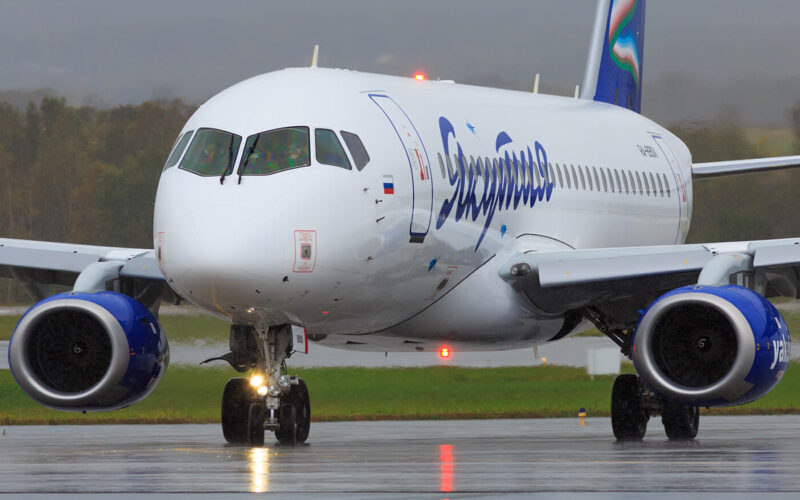Russian investigators released their final report on Yakutia Airlines SSJ100 runway excursion incident at Yakutsk Airport (YKS) on October 10, 2018. The investigation concluded that the main cause of the incident was the communication of an “incorrect braking coefficient” to the flight crew by Yakutsk air traffic control.
A Sukhoi Superjet 100-95 of Russian airline Yakutia, registered as RA-89011, was on its way from Baikal International Airport (UUD) to Yakutsk Airport (YKS), Russia, carrying out flight R3-414, when, upon landing, it failed to stop before the end of the runway and collapsed. The aircraft was damaged beyond repair.
Five crew members and 87 passengers evacuated the aircraft using emergency slides. Four people received medical attention, including a three-month-old baby, who was transported to the hospital for additional examination after luggage fell on him.
According to the Russian investigators, the incident was mainly due to the wrong information received by the flight crew. Indeed, it was reported that the friction coefficient at Yakutsk was at 0.45, with a 6 knots tailwind. Based on those parameters, the pilots proceeded with the landing despite one of the two thrust reversers being inactive.
However, it appears that the braking coefficient was in fact less than 0.3 due to the presence of ice, “which did not allow landing in accordance with current regulations,” states the report. Because of the excessive landing distance, the aircraft came into contact with another part of the runway that had been recently reconstructed and was 0.4 meters (15 inches) higher. The investigators noted the absence of a connecting ramp between the two parts of the runway, which caused the landing gear to collapse, damaging the engines.
Yakutsk management was found faulty of not taking appropriate action, given that another landing carried out by Yakutia Superjet RA-9038 two hours prior also ended in a runway excursion. The aircraft had to be towed away.

